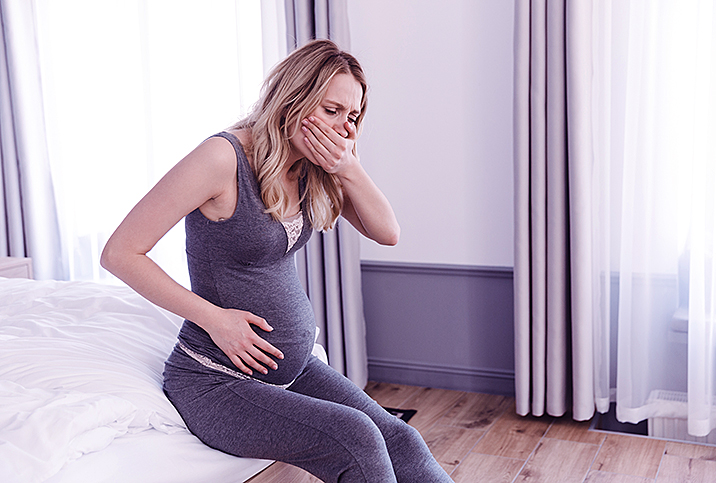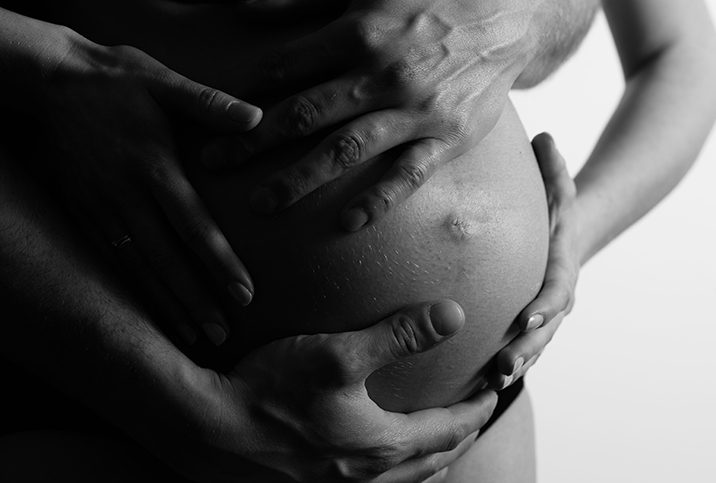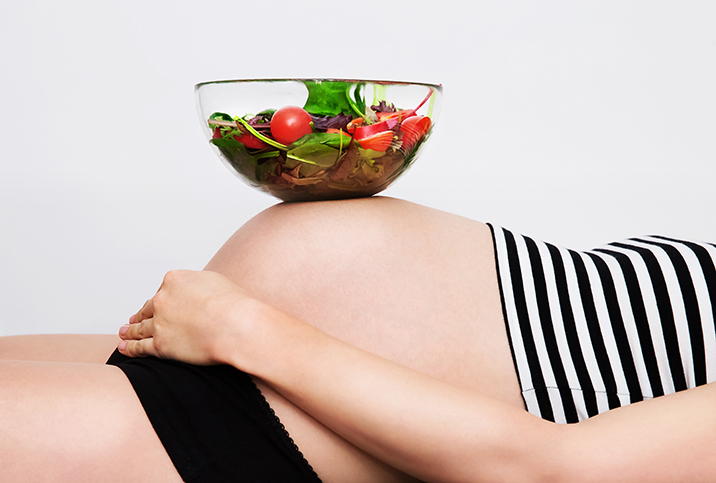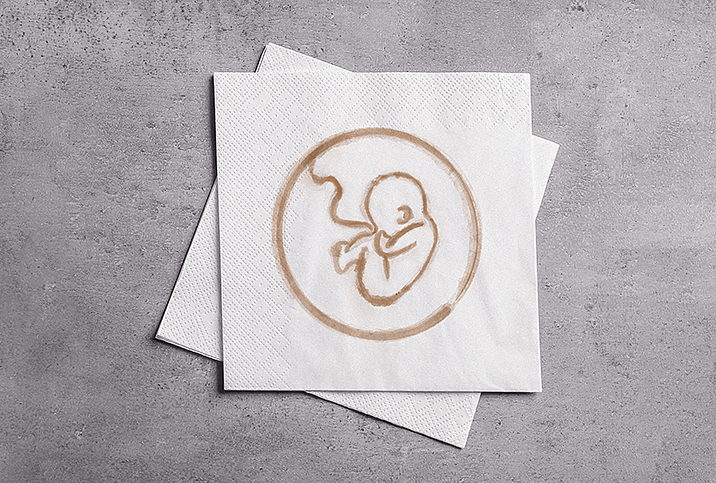My Severe Pregnancy Sickness Taught Me to Let Go

Like many people, I experienced morning sickness during my pregnancy. But mine didn't get better after the first trimester.
Throughout my pregnancy, I was sick every day and felt nauseous nonstop. Eventually, I was diagnosed with hyperemesis gravidarum (HG), severe pregnancy sickness which affects between 0.5 percent and 3 percent of women—the variation in range likely due to there being no real medical consensus on diagnostic criteria.
This experience was rough on my physical and mental well-being. Looking back, however, I've realized it taught me that when it comes to babies, birth and parenting, you can prepare—but some aspects are beyond your control. My pregnancy sickness helped me learn to let go and accept things as they are rather than how I want them to be.
Hyperemesis gravidarum can be truly miserable. I've managed with some time (my youngest is nearly 3 years old) to see some silver linings, but I don't want to minimize what can be a seriously traumatic time. More than half of women suffering from HG have considered terminating wanted pregnancies, and a quarter have thought about suicide, according to a 2021 study published in the journal Obstetric Medicine.
The problem with 'morning sickness'
"[Being] sick in early pregnancy can be seen as a badge of honor, but the reality of being sick for nine months is very different," said Carla Runchman, Ph.D., an Oxford, England-based clinical psychologist and author who also suffered HG. "There's a scale, and extreme sickness isn't a shared experience. The language we use is really important, and even the term 'morning sickness' can be unhelpful and upsetting when you're really unwell all the time."
I quickly learned "morning sickness" doesn't just happen in the morning. I was sick at all hours of the day. I have vivid memories of counting down the days until my due date, hunched over my sick bowl and weeping to my partner.
"Your environment becomes much smaller when you have HG," Runchman said. "You might be confined to your bed or house, and mentally your world shrinks, too. You learn to pace yourself, to conserve your energy and where to focus your attention."
You can't control morning sickness. If you need to be sick, you're going to be sick.
For Runchman, repetitive, simple actions were helpful in distracting her from the discomfort.
"I found doing jigsaws and crocheting worked for me," she said. "Small actions done over and over again can distract you and take your mind off bigger worries."
I was so consumed with either throwing up or trying not to that for once I wasn't able to overthink anything else. As a long-term control freak, I was expecting a fraught pregnancy, full of worries and trying to micromanage myself and my unborn baby.
But for the first time in my life, I was unable to control everything, and this has had some long-lasting impacts on my approach to parenting and life. You can't control morning sickness. If you need to be sick, you're going to be sick, so I found myself learning to embrace and adapt rather than force a different outcome.
Managing pregnancy sickness
"Pregnancy sickness can be a lesson in slowing down, putting your needs first and learning to say no," Runchman said. "You have to accept help and be reliant on other people. They say it takes a village to raise a baby, but if you have pregnancy sickness, you might need that village before the baby arrives.
"Pregnancy sickness can impact your relationship; often, a partner needs to step into a caring role," Runchman advised. "That might be changing the sheets or helping you get dressed; doing things both of you probably didn't expect. It can be a struggle or it might bring you closer. It's a completely individual experience, and the way you are set up to cope is dependent on your individual circumstances and who you have around you."
As well as the people around me, I noticed my environment changed how I felt, too. When I did manage to get away from my house, my sickness eased, and when I was stressed or triggered by certain activities, it got worse.
"That's called a psychosocial strategy," Runchman explained. "You are putting in place things to help you manage a physical experience. Sickness is a real, physical sensation, but there are some ways to moderate it. You can set up your environment to lessen demands for what you need to do."
No one knows the exact cause of hyperemesis gravidarum, and there is limited research into why it happens. Medication is available, but many people are hesitant about taking it because of a lack of awareness and education.
I tried some medication while I was pregnant and didn't experience much improvement, but many women do. Anti-nausea medication helped Runchman feel better during her pregnancies, and she learned about a variety of drugs available.
However, even as a psychologist, she found the language used disempowering and confusing.
"It's a bit of a lottery what doctors will tell you," she explained. "It's an example of misogyny in the medical system; because sickness generally impacts women, there isn't enough research or support available."
Learning to let go
Medication, your environment and who you have around might help manage how you feel, however, it's impossible to control everything when you are pregnant.
My pregnancy wasn't how I imagined, but when I was able to go with the flow and relinquish my desire to be in control, it did get a bit easier. Instead of feeling angry and upset every time I threw up, I learned to accept and deal with it.
While HG is horrible, it can have some unexpected silver linings.
"The phrase 'What doesn't kill you makes you stronger' is difficult from a psychologist's perspective because it can be hard to cope with traumatic experiences afterwards," Runchman said. "But you do learn how resilient you can be when you are placed in a vulnerable position, and you can't really be more vulnerable than being sick and unable to eat and drink."
Pregnancy is a transformative experience, and while mine wasn't smooth sailing, it did help prepare me for parenthood and dial down my chronic overthinking. I didn't get reborn as a completely chilled-out person with no worries, but there was a rounding of some edges. For that, I'm grateful—although I never want to see that sick bowl again.




















